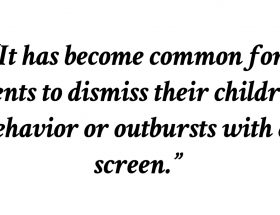A while ago, whilst reading about the opioid crisis in America, I came across a recent discovery about the relationship between drug use and location. The opioid crisis has been a bit of an obsession for a while; it is fascinating to me how just a handful of people (looking at you, Sacklers) have caused the desolation and destruction of an entire generation. Could they have any clue about the consequences of their actions? if they do, do they care? I will almost definitely never know, but I love to speculate about it. The individual responsibilities of the opioid companies are interesting, but the inherent racism of the American government that is revealed when you compare the legislative response to that of the ‘crack epidemic’ of the 80s and 90s. The differences between the treatment of majority black crack addicts (increased prison sentences, increased police violence, no social care) and the majority white opioid addicts (treatment offered, safe injection facilities) says it all. The crack addicts were portrayed as dangers to society, while opioid addicts are depicted as victims of the medical industry and their own socioeconomic status? So! Interesting!
I digress. In this particular instance I read that drug users tend to favour one location to use their substances of choice, often in communal houses. Their body will then associate that location with drug use, and so expects,on a physiological level as well as a mental one, that when they go to that location, they will take drugs. Their body, therefore, as soon as they arrive in that place, possibly even as they travel to that place, starts to produce the chemicals that will help to breakdown and metabolise the drug they are about to put in their system. Therefore, using in the same place becomes slightly safer, because the body becomes better and quicker at neutralising and destroying the drug. This might increase their tolerance, and help protect them. The flipside of this is that drug users are most likely to have fatal overdoses if they use drugs outside of their usual spot–the body does not prepare, and so cannot handle the same amount of drugs in the system. In this case, novelty can be the cause of fatality.
This got me thinking about the other things that people can be addicted to, whether your body prepares you in the same way, and what location has to do with other addictions, or habits. I can go for weeks at home with no inclination to smoke a cigarette, and yet the minute I step off the train at Leuchars I find myself reaching for my tobacco. Is that the influence of the location–my body preparing for nicotine in some way, its expectation resulting in a craving? Or, is that more of a habit, associated with the location? Is there a difference? As the primary place in the house associated with food, does your body prepare for eating when you go into the kitchen? Is this why every time you open the fridge you’re more inclined to eat, despite knowing that there is nothing there you want? Or is that simply time passing, and the erosion of your willpower to not eat the old tomatoes and single loose carrot rolling around in the vegetable drawer? I remember being told that if you chew gum you’ll get hungry quicker, because chewing stimulates digestive enzymes in the stomach to be released in preparation for the masticated food that will soon be swallowed. Our bodies make mental or physical preparations all the time that we do not notice, and are often not in control of.
Does our mind similarly anticipate how we might feel in certain places or with certain people? Whilst on the way to meet up with someone who has upset or hurt you in the past, do you mentally insulate yourselves, preparing for more damage? Does that, in a way, increase your tolerance, so that they have to be crueller to break through this insulation? Or is it the opposite: are you more primed fora jabs and jibes? If you have a comfortable home life, does walking through the front door make you more at ease in accessing your feelings, more emotional? On the flipside, if you regularly argue with your parents and don’t get on with your family, do you close up as you drive home for Christmas, shutting down your emotional responses and closing yourself off slightly?
The link to location isn’t really geographical–it’s not like you look at a map and your body is instantly aware where you’re going. It’s all sensory, and the strongest sense associated with memory is smell. You can’t ‘remember’ smells in the same way you can images, or sounds. Try imagining a specific smell: how home smells, or your favourite flower. You can’t. But if you were to smell either of those things you would be flooded by memories associated with that smell. So, by going to a specific location, you are simply having sensory experiences that are specific to that place, which can trigger memories, and the emotions and actions related to those memories.
Maybe this is why I feel nervous to go to my grandma’s house in a few days. This will be the first time I visit the home that she lived in with my grandpa until his recent passing, and will be the first time I am in that house without him. Will the subconscious expectation of seeing him result in a greater disappointment when he doesn’t open the door? Will the memories associated with their house make me feel more emotional when arriving? I’ll soon find out. I quite clearly have no real answers on this topic (just count the number of question marks packed into the last six paragraphs), but I reckon it’s worth thinking about what you may be preparing for, either consciously or subconsciously, when you return to certain places.
Art by Quinn Fagersten




